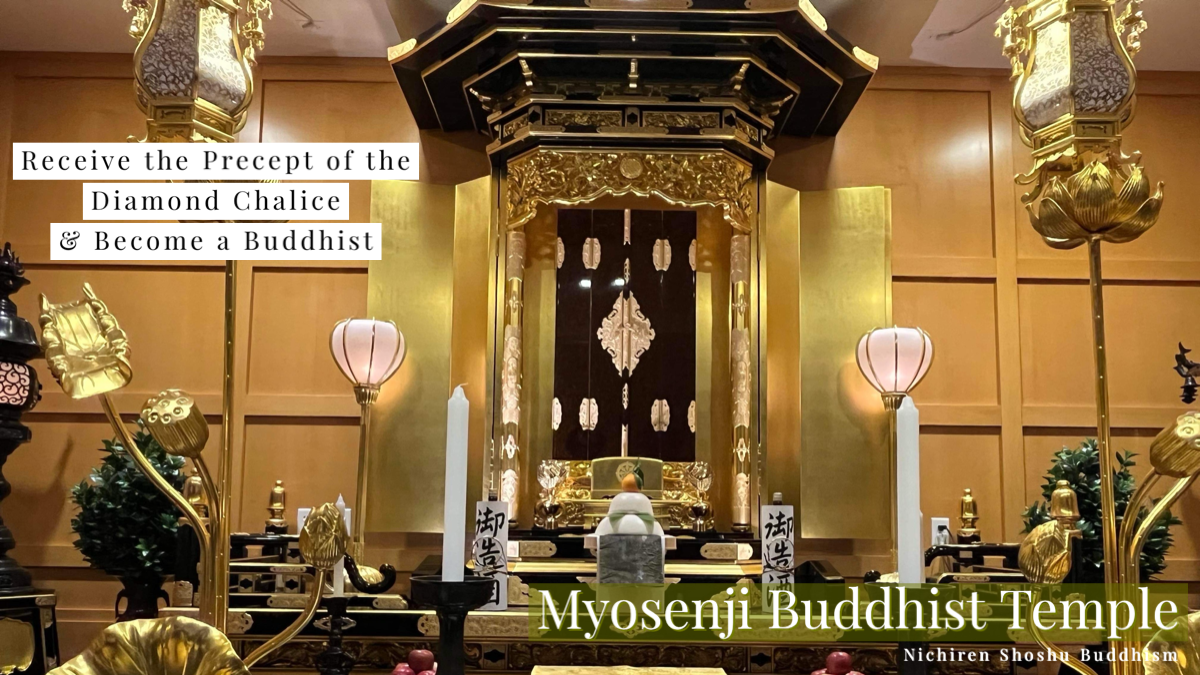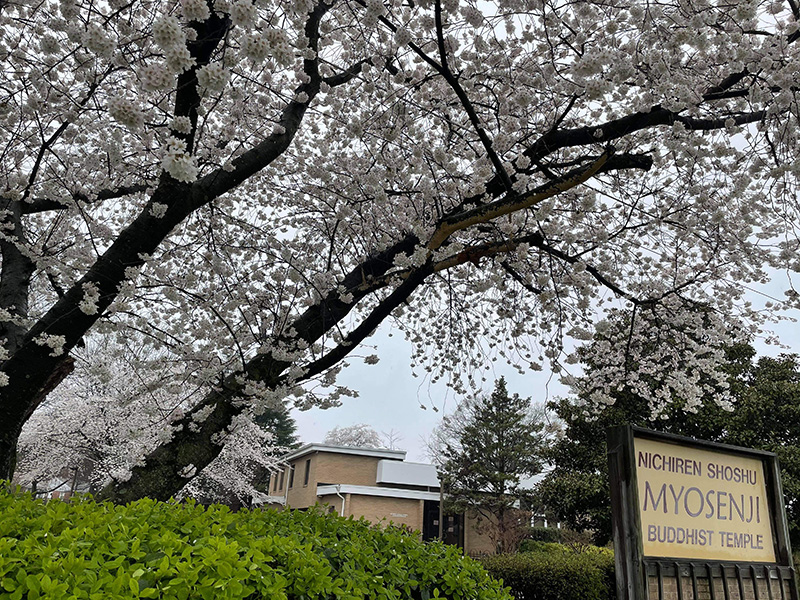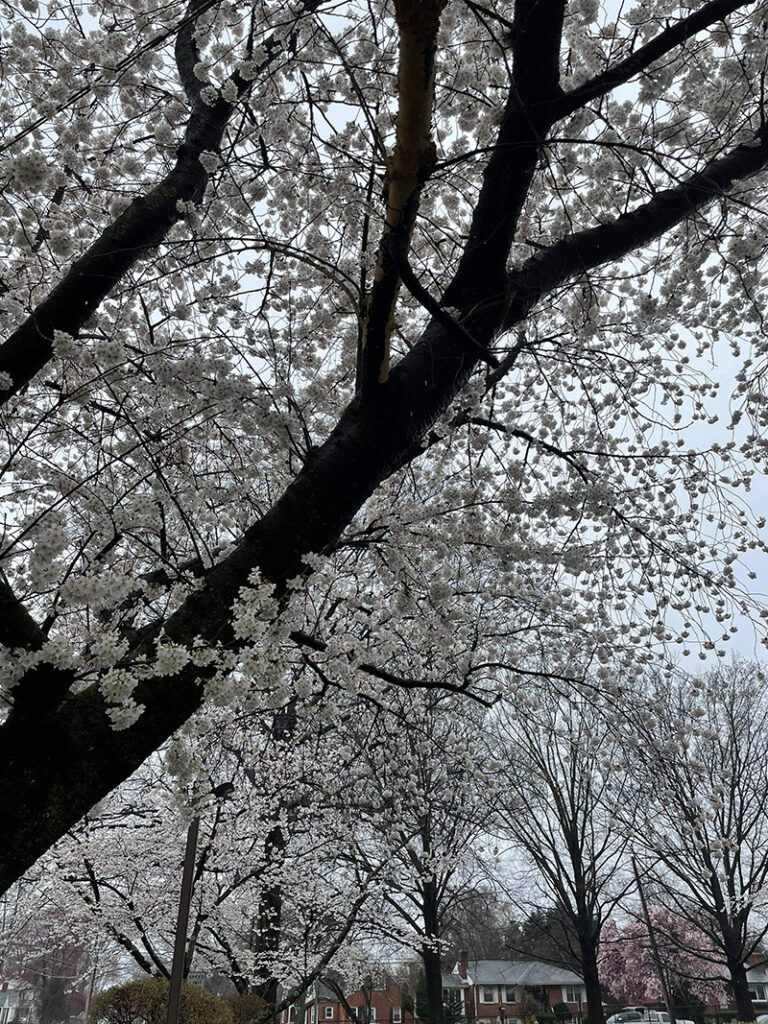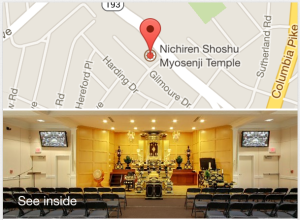Myosenji Temple has a unique and special connection to Washington, D.C.’s cherry blossoms.
Not far from Myosenji Temple (Silver Spring, MD), the first ever Japanese cherry trees in the United States were planted in 1906. David Fairchild, a U.S. Department of Agriculture official, imported one hundred flowering cherry trees and planted them on his property in Chevy Chase, Maryland.
The success of his blossoms set in motion a series of events that lead to the gift of Japanese cherry trees from Mayor Yukio Ozaki of Tokyo City to the city of Washington. This gift included trees from a nursery called “Myo-Ka-en”(妙華園) which was adjacent to Myokoji Nichiren Shoshu Buddhist Temple (sister temple to Myosenji). It is of note that the Japanese characters Myo (mystic) and Ka (flower, but also “ge” in word “renge”) were used to title this property. Nichiren Shoshu Buddhists chant Nam-Myoho-Renge-Kyo. Fifty-nine varieties of cherry tree scions from Tokyo were grafted at this nursery which were sent to Washington.
Myo-Ka-en nursery closed in 1921 but Myokoji Buddhist Temple still stands today with the same cherry trees we see in the Tidal Basin. Somei-Yoshino cherry trees grace Myokoji Temple (Tokyo), the Tidal Basin and Myosenji Temple (Silver Spring, MD).
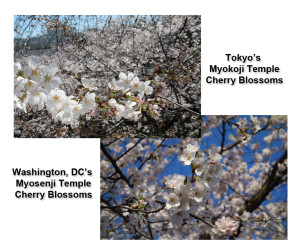 Families and children are encouraged to include a visit to a Japanese Buddhist Temple to spark learning of Buddhism and appreciation for the deep connection between Tokyo, Japan and Washington, DC made possible by cherry blossoms.
Families and children are encouraged to include a visit to a Japanese Buddhist Temple to spark learning of Buddhism and appreciation for the deep connection between Tokyo, Japan and Washington, DC made possible by cherry blossoms.
